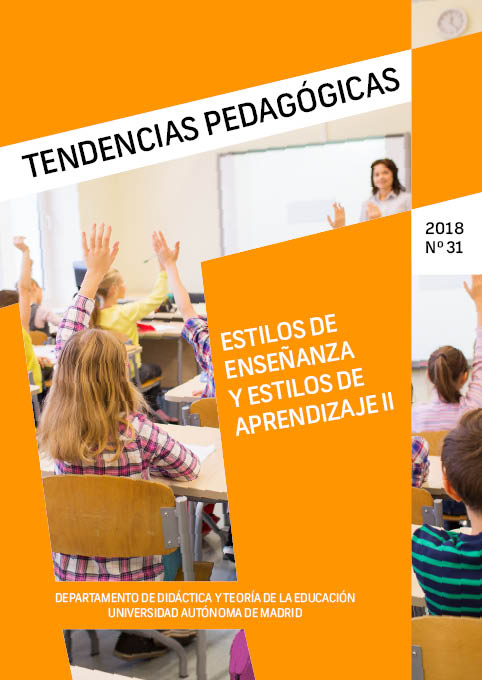Keywords:
design, learning, situations, strategic learningAbstract
The educational tendencies in the twentieth century on the teaching and learning scenarios, despite their advances, were dominated and opaque from the teaching praxis by a system of traditions of verification of the human behavior before instructional systems that exalted the hegemony of the teacher on The mental activity of those who learn, this action strengthened a didactic centered on the teaching entity, that cornered the student to be passive, to memorize without meanings and above all to learn away from the reasons with which pertinent learning was in a serious Questioning. Consequently, the master class, the proofs of proof, the dictates, the resolution of abstract problems extracted from the book of foundations prevails in a camouflaged way even today, seventeen years of the twenty-first century. In a responsible manner, the purpose of this research report is to forge reflection scenarios in the subjects that foster the formal and informal education of another subject. The methodology used was the analysis of content from the state of the art of the construct learning situations as an initial search criterion, complemented with the strategic learning approach. Finally, it can be stated that the learning situations recognize the student as an active subject capable of achieving autonomy to learn and of the teacher as mediator of flexible processes that favor knowledge derived from the generic and specific competences contemplated in the respective curricular design or the demand Of the context where the individual performs.
Downloads
References
Ausubel, D., Novack, J., Hanesian, H. (1996). Psicología Educativa, un Punto de Vista Cognoscitivo. México: Trillas.
Batista, J. y Oliveira, E. (1976). Tecnología Educacional y Teorías de Instrucción. Buenos Aires: PAIDOS.
Chan, M. y Tiburcio, A. (2000). Guía para el Diseño de Materiales Educativos Orientados al Aprendizaje Autogestivo. México: INNOVA.
Conferencia Mundial sobre Educación Superior (2009). La Nueva Dinámica de la Educación Superior y de Investigación, para el Cambio Social y Desarrollo. [Documento en línea]. Disponible: http://www.unesco.org/es. [Consulta: 2015, diciembre, 01].
Declaración Mundial sobre Educación Superior en el Siglo XXI (1998). [Documento en línea]. Disp.: http://www.oei.es [Consulta: 2015, diciembre, 01].
Feo, R. (2014). Diseño de Situaciones de Aprendizaje: Una Visión Desde y para la Educación A Distancia. Caracas: Mesa de trabajo Diseño de Situaciones de Aprendizaje para la Comisión Nacional Educación a Distancia UPEL.
Feo, R. y Guerra, C. (2014). Propuesta de un Modelo de Diseño Instruccional para la Elaboración e Implementación de Cursos a Distancia. Sapiems, 14, 1 – 22.
Flores, V. (2009). Planeación por Proyectos. [Blog en Línea]. Disponible: http://academiasefcnayavi.blogspot.com. [Consulta: 2014, julio, 23].
Gonzales, V., Gonzales, R., y López, A. (2011). Diseño de Situaciones de Aprendizaje que Potencien Competencias Profesionales en la Enseñanza Universitaria. Revista de Formación del Profesorado e Investigación Educativa, 24 (1), 121 – 134.
Herrera Clavero, F. (1991). Situaciones de aprendizaje-enseñanza España: Universidad de Granada, Instituto de Estudios Ceutíes.
Informe sobre Tendencias Sociales y Educativas en América Latina. Desafíos y Oportunidades: Metas Educativas 2021. (2010). [Documento en línea]. Disponible: http://www.siteal.iipe-oei.org [Consulta: 2011, febrero, 15].
Marzano R. (1999). Dimensiones del Aprendizaje. México: ITESO.
Mendia, R. (1989). Cómo Definir una Situación de Aprendizaje. Eskola, 22, 1 – 12.
Leontiev, N. (1978). Actividad, Conciencia y Personalidad. California: Prentice-Hall. (Traducción del ruso a inglés: Marie J. Hall).
Pérez, R. y López, F. (2000). Hacia Una Educación de Calidad, Gestión, Instrumentos y Evaluación. Madrid: Narcea.
Piraval, M., Morales. B., y Gutiérrez. M. (2013). Situaciones de Aprendizaje, Pautas Metodológicas Para el Desarrollo de Competencias en el Aula. Guatemala: dirección General de Currículo.

